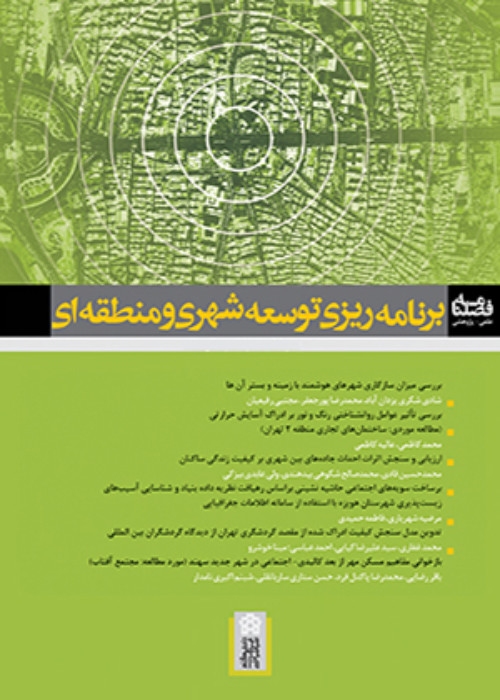A Structural Analysis of Factors Influencing Infill Development in Brownfields: A Foresight Study Approach (Case Study: Bronsi Barracks, Mashhad)
Land use planning plays a crucial role in urban planning by addressing urban needs, tackling land scarcity challenges, and determining the physical growth of cities. Urban redevelopment, specifically the revitalization of vacant and abandoned lands, serves as an effective strategy to optimize land utilization, mitigate pollution, and enhance the socioeconomic urban environment. In this study, a foresight approach is adopted, employing descriptive-analytical methods to conduct a structural analysis of the factors involved in infill development in the Bronsi barracks brownfields located in Mashhad. Data collection was conducted through secondary research and surveys, with a statistical sample comprising eight purposively selected urban experts. A total of 15 variables associated with sustainable brownfield planning were identified, encompassing physical-spatial, socioeconomic, managerial-institutional, and environmental aspects. These variables were further classified into five groups: influential, double-faceted, susceptible, independent, and regulatory. To evaluate the relationships among the variables, the Micmac software was utilized, and subsequent scenarios including probable and favorable outcomes were determined. The analysis highlighted the priority of three key factors in inactive lands: land price, accessibility to services and facilities, and the number of land uses. These findings are of great significance and should be taken into consideration by urban decision-makers not only in the studied sites but also in similar areas.
-
Recognition of immovable tangible cultural heritage tourism attractions in the Great Khorasan area (case study: Kalat Nader County)
, Barat Ali Khakpoor*
Journal of Greate Khorasan, -
Assessing the status of cultural heritage tourism using hierarchical analysis Process (study case: Historical Works and Buildings of Kalat County)
, Barat Ali Khakpoor *
Scientific Quarterly of Social-Cultural Studies of Khorasan,



